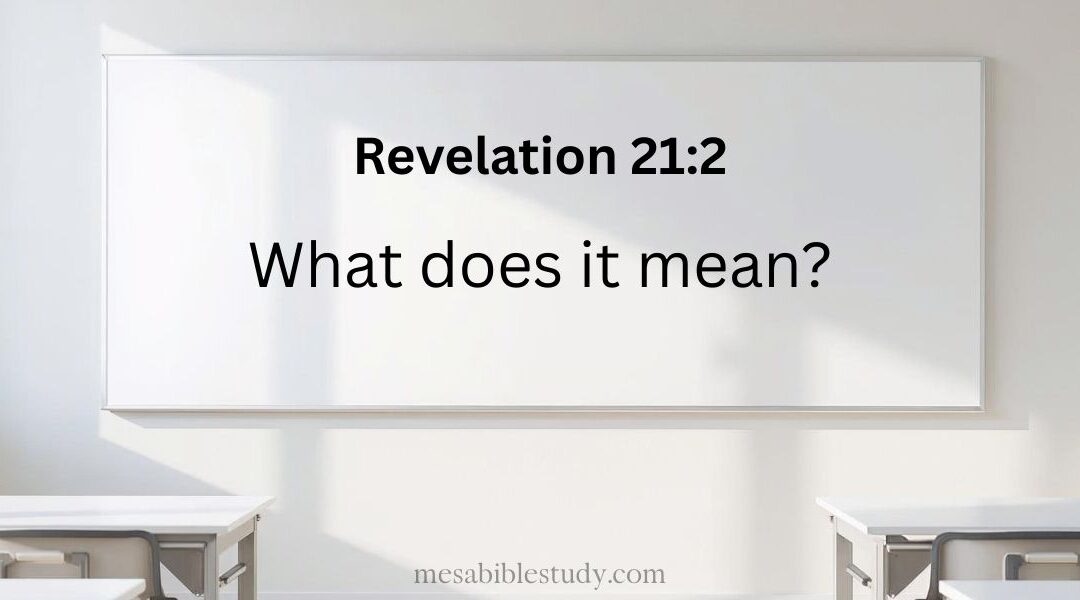
by Jamie Pantastico | Jan 27, 2026 | Devotionals |
Psalm 61:3 — God Our Shelter and Strong Tower
“For You have been a shelter for me,
A strong tower from the enemy.”
— Psalm 61:3
Background & Setting
David is still in hardship, but he is now strengthening his heart by remembering. His trial has not ended—yet fear begins to loosen its grip because David looks back and sees the hand of God again and again.
Phrase-by-Phrase Insight
“For You have been a shelter for me”
David does not speak hypothetically. He speaks historically. God has already proven Himself to be David’s refuge.
“A strong tower from the enemy”
A strong tower is elevated protection—high and secure. David understands real enemies, real danger, and real threat. Yet he knows God is greater than all of it.
Devotional Reflection
One of the enemy’s greatest weapons is spiritual amnesia—forgetting.
Forgetting what God has done.
Forgetting how He carried you.
Forgetting how He sustained you.
David fights fear with remembrance.
He does not say, “I hope You’ll be my shelter.”
He says, “You have been.”
Your current storm does not erase God’s past deliverances. His faithfulness is not fragile, and your life is not beyond His keeping.
Word of Encouragement
Look back.
Remember the times God rescued you, upheld you, strengthened you, and carried you. What He has been, He still is.
He has been your shelter— and He has not changed.
Reading Plan
- Day 1: Psalm 61:3
- Day 2: Psalm 91
- Day 3: Proverbs 18:10
- Day 4: Romans 8:31–39

by Jamie Pantastico | Jan 26, 2026 | Verse-by-Verse Bible Studies |
Ezekiel 36:23 —
“And I will sanctify My great name, which has been profaned among the nations, which you have profaned in their midst; and the nations shall know that I am the LORD,’ says the Lord GOD, ‘when I am hallowed in you before their eyes.’”
📬This Passage Breakdown is written in response to a subscriber request from Darrell T., Sherman, Texas.
📜 Background, Setting & Purpose
✍️ Author
Ezekiel, a prophet of God ministering among the Jewish exiles.
👥 Written To
The house of Israel, specifically those in Babylonian captivity.
⏲️ When
Approximately 593–571 B.C., during Israel’s exile.
🌍 Setting & Purpose of Ezekiel (book-level)
Ezekiel was sent to Israel at a time of severe national judgment. Jerusalem had fallen, the temple was destroyed, and Israel had been scattered among the nations because of persistent rebellion.
Ezekiel 36 is a restoration chapter. It looks beyond judgment to Israel’s future regathering, cleansing, spiritual renewal, and ultimate restoration in the land. This chapter is not about the Church. It is about God vindicating His name through Israel in the sight of the nations.
📖 Immediate Context (Ezekiel 36:16–22)
Before verse 23, God explains why Israel was scattered:
- Israel defiled the land
- God poured out His wrath
- Israel was scattered among the nations
But then God makes something unmistakably clear:
Israel’s restoration will not be because Israel deserves it.
It will be because God’s name has been profaned among the nations.
✨ Phrase-by-Phrase Breakdown
“And I will sanctify My great name…”
God is the subject.
God is the actor.
God is the one who restores.
Israel’s future restoration is rooted in God’s holiness, not Israel’s performance.
“…which has been profaned among the nations…”
Because Israel bore God’s name, their disobedience caused the nations to mock the God of Israel.
Israel’s failure reflected poorly on the LORD in the eyes of the world.
“…which you have profaned in their midst…”
God does not excuse Israel’s sin.
Israel was responsible for misrepresenting God before the nations.
“…and the nations shall know that I am the LORD…”
This is the purpose clause.
Israel’s restoration has a global goal:
- God’s reputation
- God’s glory
- God’s name being vindicated
“…when I am hallowed in you before their eyes.”
God will sanctify His name through Israel, publicly and visibly.
This is not spiritualized.
This is not invisible.
This is not private.
It is national, earthly, and observable.
❌ What This Verse Does Not Mean
- Not that Israel earns restoration
- Not that the Church replaces Israel
- Not that this refers to individual salvation
- Not that this is fulfilled in the Church Age
✅ What This Verse Does Mean
- God’s promises to Israel are unconditional
- Israel’s restoration is for God’s glory
- God will publicly vindicate His name
- The nations will recognize the LORD through Israel
🔗 Cross-References for Going Deeper
Ezekiel 36:24–28 — Regathering and spiritual renewal
Ezekiel 37 — National resurrection of Israel
Isaiah 52:5–6 — God’s name blasphemed among the nations
Zechariah 12:10 — Israel’s future repentance
Romans 11:25–29 — God’s gifts and calling are irrevocable
📘 Doctrinal Summary
Ezekiel 36:23 declares that Israel’s future restoration is grounded not in Israel’s worthiness but in God’s commitment to His own holy name. Though Israel profaned the LORD among the nations, God promises to vindicate His name by restoring, cleansing, and renewing Israel before the eyes of the world. This passage affirms that God’s covenant purposes for Israel remain intact and will be fulfilled exactly as promised. Any theology that removes Israel from this plan undermines the very reason God gives for their restoration—His glory among the nations.

by Jamie Pantastico | Jan 25, 2026 | Verse-by-Verse Bible Studies |
Revelation 21:2
“Then I, John, saw the holy city, New Jerusalem, coming down out of heaven from God, prepared as a bride adorned for her husband.”
📬This Passage Breakdown is written in response to a subscriber request from Leilani M., Kaneohe, Hawaii.
📜 Background, Setting & Purpose
✍️ Author
The apostle John, writing under divine inspiration.
👥 Written To
The seven churches of Asia—and by extension, all believers—concerning future events.
⏲️ When
Approximately A.D. 50-58, many years before John’s exile on the island of Patmos.
🌍 Setting & Purpose of Revelation (book-level)
Revelation reveals God’s final resolution of history: judgment, restoration, and the eternal state. Chapters 21–22 describe what follows the Millennium, the final judgment, and the passing away of the old heaven and earth (Rev 20; 21:1).
Revelation 21 does not describe the Church Age, the Tribulation, or the Millennium. It reveals the eternal dwelling place of God with redeemed humanity.
📖 Immediate Context
- Revelation 21:1 — A new heaven and a new earth are created
- Revelation 20 — Satan judged; death and Hades cast into the lake of fire
- Sin, death, and rebellion are permanently removed
Now John sees the centerpiece of the eternal state.
✨ Phrase-by-Phrase Breakdown
“Then I, John, saw…”
John is an eyewitness.
This is not symbolism disconnected from reality—it is revealed future truth.
“…the holy city, New Jerusalem…”
This is a literal city, not a metaphor.
- It is called holy
- It is distinct from earthly Jerusalem
- It is not the Church
Revelation 21:10 later confirms its physical dimensions and structure.
“…coming down out of heaven from God…”
The direction matters.
Heaven comes to earth.
God’s dwelling place descends to mankind.
This fulfills God’s purpose from Genesis to Revelation:
God dwelling with man.
“…prepared as a bride adorned for her husband.”
This is a simile, not an identity statement.
The city is described like a bride—radiant, glorious, prepared.
It does not say the city is the bride.
The Bride (the Church) is described elsewhere (Eph 5:25–27).
The city is described here.
❌ What This Verse Does Not Mean
- Not that the Church is the city
- Not that this is happening now
- Not that this refers to heaven as a vague spiritual state
- Not that Old Testament promises are erased
✅ What This Verse Does Mean
- God will dwell with redeemed humanity forever
- The eternal state is physical and real
- God fulfills His promises literally
- Distinctions in Scripture remain intact
🔗 Cross-References for Going Deeper
Genesis 2:8 — God dwelling with man
Hebrews 11:10 — A city whose builder is God
Revelation 3:12 — The name of the New Jerusalem
Revelation 21:9–27 — Detailed description of the city
Ephesians 5:25–27 — The Bride of Christ
📘 Doctrinal Summary
Revelation 21:2 reveals the culmination of God’s redemptive plan—the eternal dwelling of God with redeemed humanity in a real, holy city prepared by God Himself. The New Jerusalem is not the Church, nor is it symbolic of salvation. It is a literal city descending from heaven after all judgment is complete. The imagery of a bride emphasizes beauty, preparation, and glory, while preserving the distinctions God Himself maintains throughout Scripture. This verse affirms that God keeps His promises exactly as revealed and that eternity is not abstract—it is tangible, ordered, and glorious.

by Jamie Pantastico | Jan 25, 2026 | Devotionals |
Psalm 61:2 — Lead Me to the Rock Higher Than I
“From the end of the earth I will cry to You,
When my heart is overwhelmed;
Lead me to the rock that is higher than I.”
— Psalm 61:2
Background & Setting
David’s circumstances have not improved. He is still separated from stability, removed from what once felt secure, and weighed down by danger and sorrow. Yet instead of collapsing inward, David cries upward.
This verse captures the heart of Psalm 61: what to do when the heart is overwhelmed.
Phrase-by-Phrase Insight
“From the end of the earth I will cry to You”
David feels far away, but he does not believe distance limits God. Even displaced and isolated, David knows God’s ear is not confined to Jerusalem.
“When my heart is overwhelmed”
David speaks plainly. His heart is not simply troubled—it is overwhelmed, covered over, faint. Scripture records this without embarrassment.
“Lead me to the rock that is higher than I”
David does not ask to be removed from the trial—he asks to be lifted above it. The “rock” pictures strength and stability. But it is higher than David. He cannot reach it without God leading him.
Devotional Reflection
There are moments in life when you cannot “think your way through” what you’re facing. The mind is exhausted. The heart is drained. The pressure feels constant.
David’s solution is not self-improvement. It is surrender.
He does not say, “I’ll climb higher.”
He says, “Lead me.”
That is the difference between striving and trusting. And it is here that the believer finds peace: not in controlling the storm, but in standing on the Rock above it.
Word of Encouragement
If you feel overwhelmed today, tell the Lord the truth.
And then ask Him to lead you.
He will lift you where you cannot climb.
The Rock is higher than you for a reason.
Reading Plan
- Day 1: Psalm 61:1–2
- Day 2: Psalm 18:1–3
- Day 3: Psalm 46
- Day 4: 2 Corinthians 12:9–10
Explore the Series
← Previous | 📖 Series Home | Next →

by Jamie Pantastico | Jan 25, 2026 | Verse-by-Verse Bible Studies |
Heaven Rules: The “Most High” Governs Every Nation (Daniel 4:17)
“This decision is by the decree of the watchers, and the sentence by the word of the holy ones, in order that the living may know that the Most High rules in the kingdom of men, gives it to whomever He will, and sets over it the lowest of men.”
📬 Reader Request:
This Passage Breakdown was requested by Andy T, from Orlando, Florida who recently asked about Daniel 4:17.
I’m grateful for every question that helps shape this series.
This series reaches thousands of people around the world daily. Praise God.
📜 Background, Setting & Purpose
✍️ Author
Daniel.
👥 Written To
Daniel 4 is framed as a proclamation from King Nebuchadnezzar to the peoples under Gentile world dominion (Dan. 4:1), making this chapter uniquely “Gentile-facing” in tone and purpose.
⏲️ When
6th century B.C., during Israel’s captivity under Babylon.
🌍 Setting & Purpose of Daniel (book-level)
Daniel is written during the period when Israel is under Gentile rule—what Christ later called “the times of the Gentiles” (Luke 21:24). The throne of David is not reigning in Jerusalem, and Israel is in judgment among the nations.
Yet Daniel reveals this crucial truth:
Even when Israel is scattered, God is not absent. He is governing Gentile dominion from heaven.
Daniel 4 is God humbling the greatest Gentile king on earth to prove an eternal principle of divine government: heaven rules.
📖 Immediate Context
Nebuchadnezzar dreams of a great tree representing his kingdom. Daniel interprets the dream and warns him:
- God will humble him
- he will lose his sanity
- he will live like an animal
- until he acknowledges God’s authority
Daniel 4:17 is the divine purpose statement explaining why this judgment must happen.
✨ Phrase-by-Phrase Breakdown
“This decision is by the decree of the watchers…”
“Watchers” are angelic beings—heavenly agents involved in divine administration.
This reveals a sobering truth:
Earthly governments may look autonomous, but they are not. Heaven is watching, and heaven is ruling.
“…and the sentence by the word of the holy ones…”
God uses holy angelic agents, but the judgment is not theirs independently—God is the sovereign Judge behind the sentence.
Nebuchadnezzar is not being disciplined by politics, chance, or fate.
He is being confronted by the God of heaven.
“…in order that the living may know…”
This is not merely about humbling one king. God’s purpose is educational and universal:
God intends all mankind (“the living”) to learn a lesson about who controls world history.
“…that the Most High rules in the kingdom of men…”
This is the doctrinal centerpiece.
The title “Most High” in Hebrew is El Elyon (אֵל עֶלְיוֹן) — God Most High.
This title emphasizes God’s:
- supreme sovereignty
- exaltation above all rulers
- authority over heaven and earth
- dominion over all nations and peoples
It is not a different God. It is the same God of Scripture, but revealed with a title that highlights His universal dominion—especially in relation to the Gentile world-system.
📌 Key Doctrinal Note: Jehovah vs. Most High (Gentile emphasis)
This distinction is critical for readers to understand:
1) Jehovah / LORD (YHWH)
God’s covenant name tied especially to:
- Israel
- redemption
- covenant promises
- God’s dealings with Abraham, Isaac, and Jacob
2) Most High / El Elyon
A title emphasizing God as:
- possessor of heaven and earth
- ruler over all kings and nations
- sovereign over Gentile dominion and world empires
This is why “Most High” appears in contexts involving:
- Gentile kings and kingdoms
- national boundary-setting
- world government
For example:
- Genesis 14:18–20 — Melchizedek is “priest of the Most High God”
- Genesis 14:22 — Abraham equates El Elyon with Jehovah, proving it’s the same God
- Deuteronomy 32:8–9 — the Most High divides the nations
- Daniel 4 — the Most High humbles Gentile rulers
So Daniel 4 is God teaching the nations:
You may rule on earth, but only under the permission of El Elyon.
“…gives it to whomever He will…”
This destroys man-centered history
God grants dominion.
God removes dominion.
God transfers dominion.
Empires rise, reign, and fall because God allows them to.
“…and sets over it the lowest of men.”
God may place over nations those who appear:
- weak
- unlikely
- unqualified
- foolish
- morally corrupt
Why?
So that mankind does not confuse government power with sovereignty.
The throne is never ultimate—God is.
✦ The Genesis 14 Foundation: El Elyon and Melchizedek
The first major appearance of El Elyon in Scripture is Genesis 14:18:
“Then Melchizedek king of Salem brought out bread and wine; he was the priest of God Most High.” (NKJV)
Melchizedek is introduced as:
- king of Salem (peace / ancient Jerusalem)
- priest of the Most High God (El Elyon)
I do not believe Melchizedek is merely a type—he is best understood as a theophany: a pre-incarnate appearance of Christ.
Hebrews 7:1–3 describes him as:
- King of righteousness
- King of peace
- without recorded father/mother/genealogy
- no recorded beginning/end
- “made like the Son of God”
- abiding a priest continually
This priesthood is outside Israel’s later Levitical system and fits perfectly with the title El Elyon, emphasizing God’s universal dominion and access beyond Israel’s national structure at that time.
The bread and wine foreshadow Christ’s sacrifice and the later communion picture—early progressive revelation pointing forward to the greater Priest-King: Jesus Christ.
❌ What This Verse Does Not Mean
- Not that every ruler is righteous
- Not that God morally approves every regime
- Not that God’s sovereignty excuses evil
- Not that nations are random accidents of history
✅ What This Verse Does Mean
- God rules the Gentile world-system
- God appoints rulers and removes rulers
- God humbles the proud
- God governs world history toward His prophetic conclusions
- Heaven rules—even in times of Gentile dominion
📘 Doctrinal Summary
Daniel 4:17 reveals that the God of Scripture—El Elyon, the Most High—rules over the kingdoms of men. This title emphasizes God’s universal sovereignty over the Gentile world-system, particularly during Israel’s captivity and Gentile dominion. Jehovah is God’s covenant name tied to Israel and redemption, but “Most High” highlights His exalted authority over all nations and kings. The first major revelation of this title occurs in Genesis 14 with Melchizedek, priest of the Most High God, foreshadowing Christ’s eternal priesthood. Daniel 4 teaches what every nation must learn: kings rise and fall, but the Most High reigns forever.
🔗 Cross-References for Going Deeper
Genesis 14:18–22 — El Elyon + Abraham equates with Jehovah
Deuteronomy 32:8–9 — Most High divides the nations
Daniel 2:21 — removes kings, raises up kings
Psalm 47:2 — the LORD Most High is awesome
Acts 17:26 — boundaries and times of nations
Hebrews 7:1–3 — Melchizedek and eternal priesthood




